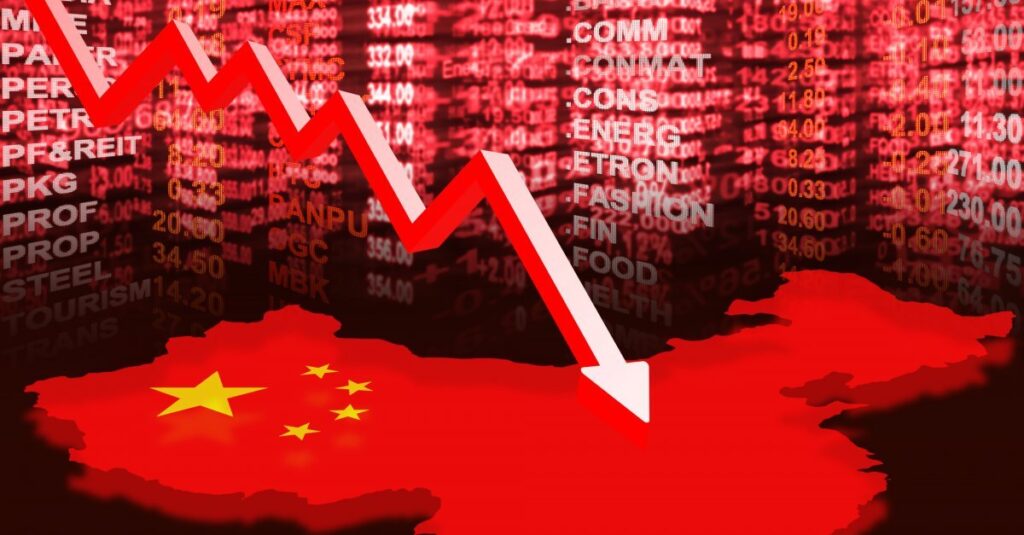
Ray Dalio the owner of American investment management firm, Bridgewater Associates which helps top investors worldwide to grow their money, in a recent interview with Bloomberg television, said that he had sold most of the investments in China. He warned that China was facing serious economic problems. “You have an environment in China which is changing and becoming a more difficult environment,” Dalio said.

The trouble is evident in the stock market. The Shanghai Shenzhen CSI 300 index is on a free fall for more than two years. Investors both foreign and domestic are divesting investments to stop loss. Foreign investors are going to other emerging markets. Chinese nationals are holding on cash or buying gold coins and bars to prevent further erosion of personal wealth.
“The pillars of China’s economy are in a free fall that’s getting worse,” top financial magazine Fortune reported on September 2, 2024. The very next day (September 3, 2024) The New York Times carried a detailed report titled: “Why It’s So Hard for China to Fix Its Ailing Economy.” Not that the world makes merry at China’s problems. When a big economy goes down, it takes many along with it. People are really scared about the impact of the Chinese recession. “A real estate collapse has made consumers cautious and businesses wary, as China confronts a crisis unlike any other since it opened its economy to the world,” New York Times elaborated.
The result is catastrophic. Chinese consumers have cut down on expenditure for savings. Businesses suffered the crippling impact of President Xi Jinping’s draconian Covid measures. Theyhad cut salaries and scaled back hiring. Millions of college graduates joining the job market are facing poor prospects. China’s population has shrunk two years in a row. According to NYT, “in a country where the majority of people had only known the economy to grow rapidly and living conditions to improve, confidence is eroding.”
The declining sentiments are caught in almost every newspaper report emanating from China. “China’s economy softened in August, extending a slowdown in industrial activity and real estate prices as Beijing faces pressure to ramp up spending to stimulate demand.Data published by the National Bureau of Statistics showed weakening activity across industrial production, retail sales and real estate this month compared to July,” AP News, formerly Associated Press, reported from Beijing on September 14. Notably Beijing had already offered huge stimulus to rev up manufacturing and property sales. It did not work. The official manufacturing purchasing managers’ index (PMI) is in contraction zone for 15 out of the last 18 months. The analysts are now expecting the Xi Jinping administration to order more stimulus to keep the economy alive, artificially. “China has been relying on its manufacturing might and export engines to offset the drag from a slumping property market and keep its growth target in sight. Growing headwinds on both fronts suggest the government will need to step up support if it’s to hit that goal of an expansion of around 5%,” Fortune said.

There is barely any ray of hope in the economic outlook. China targeted 5% GDP growth in 2024. In September, Goldman Sachs and Citigroup lowered their full-year projections for China’s economic growth to 4.7%. Goldman earlier expected 4.9% growth, while Citigroup forecast was 4.8%.”We believe the risk that China will miss the ‘around 5%’ full-year GDP growth target is on the rise, and thus the urgency for more demand-side easing measures is also increasing,” Goldman Sachs said in September 15 note. The 2025 growth forecast is pegged at 4.3%.
JP Morgan is also equally hopeless about China. Haibin Zhu, chief China economist at JPMorgan told CNBC that the housing market crash would continue for at least another year. At its peak property sector contributed over a quarter of China’s GDP. The US-based Capital Economics which has the distinction of accurately forecasting recession in China said: “An acceleration in fiscal spending during the final months of the year should mean the 2024 growth target of “around 5.0%” is met, but only just – we now expect growth of 4.8% this year. China’s slowdown is likely to continue over the coming years as export growth moderates and construction activity drops back to more sustainable levels. We expect growth to fall to just 2% by the end of this decade.”